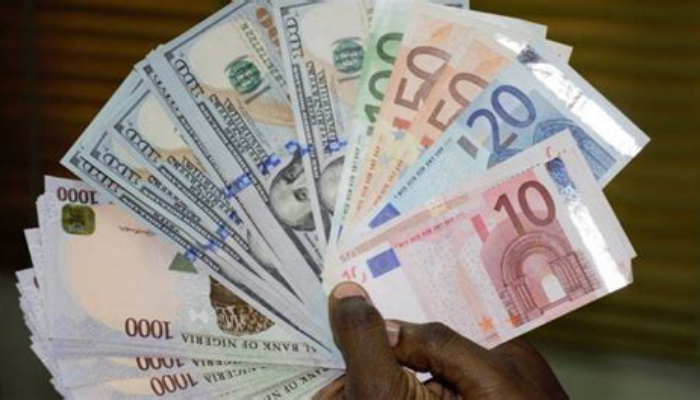The naira recorded further appreciation against the British pound on Tuesday, trading below ₦1,950 to a pound at the official foreign exchange market. This marks a continuation of the local currency’s recent recovery trend following a series of monetary policy adjustments by the Central Bank of Nigeria aimed at stabilizing the foreign exchange market.
Data from the FMDQ Securities Exchange showed that the naira closed at ₦1,945 per pound, representing a modest but notable gain compared to the previous day’s rate. The appreciation is being attributed to improved liquidity conditions in the foreign exchange window and gradual investor confidence following the CBN’s decision to unify exchange rates.
In the parallel market, the pound traded within a band of ₦1,920 to ₦2,100, reflecting persistent volatility between the official and unofficial segments of the market. Despite the gains at the official window, dealers in the parallel market noted that scarcity of foreign currency continues to influence wider rate variations across trading hubs in Lagos and Abuja.
The current performance follows months of intense depreciation that saw the naira cross ₦2,000 per pound in mid-September. Analysts say the currency’s rebound below ₦1,950 suggests that the policy measures introduced by the apex bank are beginning to yield some effect, though sustained improvement would depend on Nigeria’s ability to increase foreign exchange inflows through exports, remittances, and foreign investment.
Nigeria’s foreign exchange reform was initiated to correct long-standing distortions caused by multiple exchange rates. The CBN’s floating of the naira, alongside stricter monitoring of Bureau de Change operators, was intended to close arbitrage gaps and restore transparency in the FX market. These actions have since reduced speculative trading and helped restore partial alignment between official and street rates.
Meanwhile, Nigeria’s inflation rate has been on a gradual decline for the fifth consecutive month, a development that economists believe is contributing to a mild easing of currency pressure. Lower inflation strengthens the naira’s relative value in domestic and external trade, while stabilising investor outlook. The National Bureau of Statistics is expected to release updated inflation data this week, which may further indicate the overall direction of the economy.
The improvement in the naira’s value also comes amid changing dynamics in global currency markets. The British pound has experienced fluctuations due to policy signals from the Bank of England and expectations of interest rate adjustments in the United Kingdom. This, combined with Nigeria’s domestic monetary tightening, may have slightly narrowed the exchange rate gap.
Despite the encouraging performance, analysts warn that the current gains may be short-lived unless the country achieves a steady increase in dollar supply. Import dependence, capital flight, and oil revenue volatility remain key risks that could reverse recent progress.
The Central Bank has maintained that it will continue to intervene when necessary to ensure market stability, while reiterating its commitment to long-term exchange rate sustainability. Market observers say the next few weeks will reveal whether the current trend represents a genuine turnaround or a temporary reprieve for the naira.
Samuel Aina

